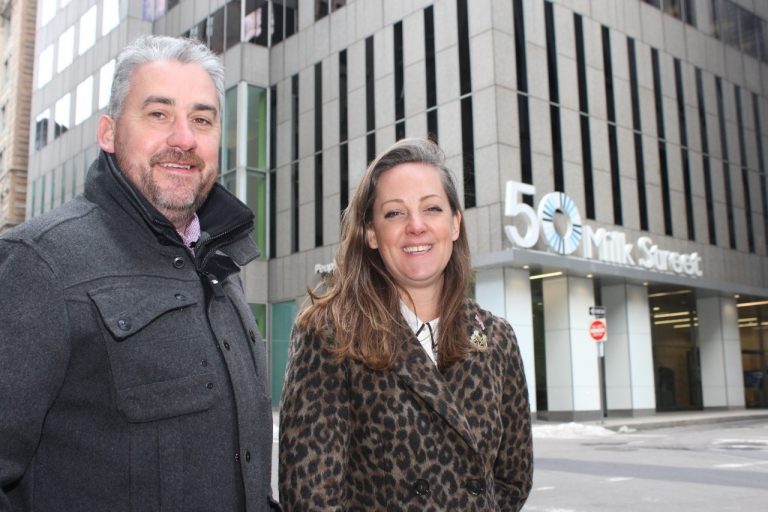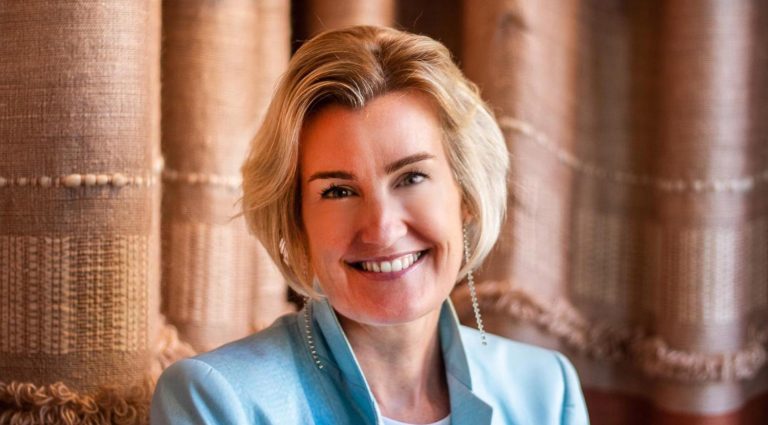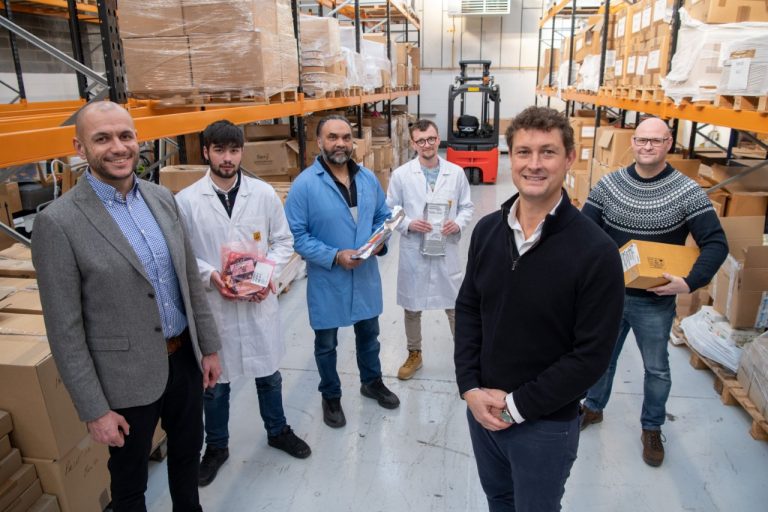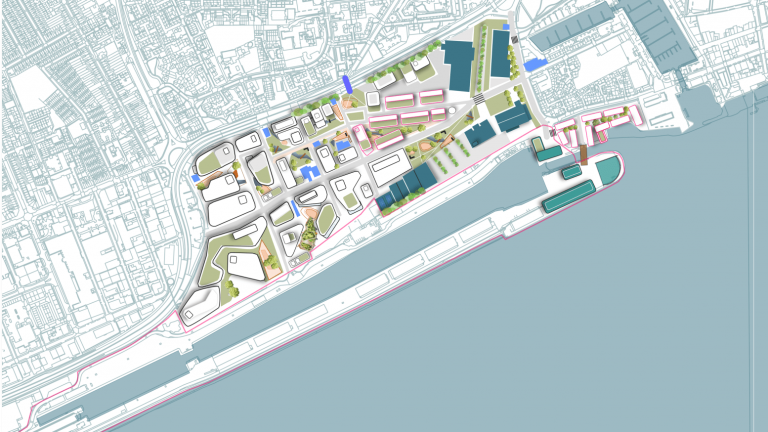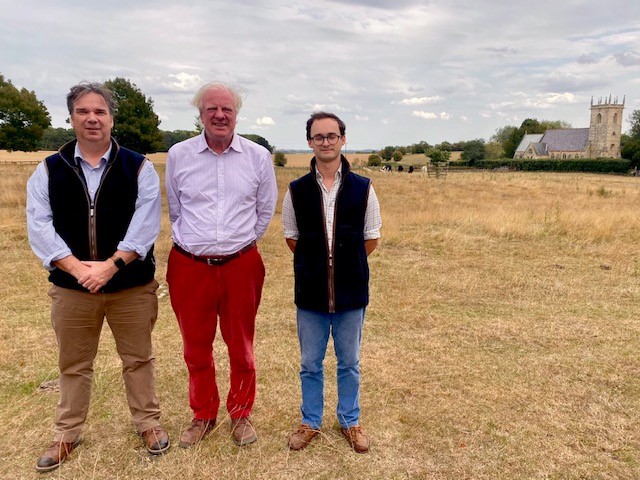Panintelligence eyes US growth following £1m SaaS revenues in first full year on AWS
Panintelligence, the Leeds-based provider of business intelligence and predictive analytics tools, has announced the relaunch of its US office.
The move comes in the wake of the firm’s first full year offering its hosted software as a service (SaaS) product via the Amazon Web Services (AWS) Infrastructure, which has opened up a vast new potential market of SaaS customers globally.
The business, which had opened the doors of its Boston operation just a year before the pandemic, is relaunching its operations in the US three years after global travel restrictions sent its business there virtual. The move follows £1m of new revenues from Panintelligence’s cloud-based products in the firm’s first full year on AWS in 2022 with growth of 46% year on year.
“We’re a completely different business now than three years ago and we are now 100% focused on deployment in the cloud, and mainly via AWS. We are relaunching in the US to drive our sales in the biggest global market for our products,” said founder Zandra Moore.
The move was a major strategic pivot for the Leeds-based software business in direct response to a dramatic growth in demand for hosted services that has been triggered by the impact of the pandemic on the software market since 2020.
“Three years after we were forced to cancel our launch event in Boston on the eve of the global lockdown, we’re back in the US with a totally re-engineered business model and fantastic growth in our first year as a truly SaaS business,” she added.
The firm will mark its relaunch in the US with a high profile event hosted by the Department of International Trade in Boston on 3rd March, following a coast to coast programme of meetings with AWS and partner software vendors in San Francisco, New York and Boston.
“The move to SaaS was a sea change in the business and it enables software vendors and customers with smaller development resources and infrastructure to more rapidly integrate and use the Pi BI solution, enabling decisions to be based on real-time information from data already held by customers. It made the firm’s Pi software tools accessible to a new market of software vendors, and allows for faster potential growth in revenues,” added COO Charlotte Bailey.
The re-launch marks the culmination of a 30-month programme of product and service re-development in order to meet increasing global demand for its embedded dashboards, reporting and predictive analytics tools as a fully-hosted service.
COO Charlotte Bailey said: “Panintelligence’s mission has always been to democratise data and enable agility, and this move further opens up the value of insight to a whole new market of vendors and customers so that everyone, no matter what area of the business they work in, can access what they need in real time and truly become data-first companies.”
Panintelligence was founded by Ken Miller and CEO Zandra Moore in 2014 and employs a team of 43 staff at the company’s Leeds HQ.
Legal and General agrees £430m buy-in to Tioxide pension fund
Legal & General Assurance Society has agreed a £430 million buy-in with the Tioxide Pension Fund, securing the benefits of around 2,700 retirees and deferred members.
The sponsoring company, Venator Group (“the Sponsor”), is a leading global chemical company. The Fund is an existing Legal & General client, with Legal & General Investment Management (“LGIM”) having managed a proportion of the Scheme’s assets since 1995.
Legal & General was able to offer a tailored price lock solution that provided price certainty to the Trustee during a period of high market volatility while the terms of the buy-in were being agreed.
The Trustee and Sponsor appointed Aon as their specialist adviser for the transaction while legal advice was provided to the Trustee by Addleshaw Goddard. Clifford Chance provided legal advice to Legal & General.
Sally Roberts, Chair of Trustees, said: “We are very happy to have secured our members’ benefits fully through this transaction and achieve our long-term objective for the Fund. We appointed Aon as our specialist adviser for the transaction and we are grateful for the support of them and our advisers and the collaboration between the Trustee and Company to enable us to achieve this positive outcome for the Fund and our members.”
British Chambers of Commerce Director General joins board of ICC UK
The International Chamber of Commerce United Kingdom has appointed Shevaun Haviland (above) to its board.
As the Director General of the British Chambers of Commerce, Haviland’s local, national and international voice represents the BCC’s 53 Accredited Chambers in the UK and the tens of thousands of member businesses which employ close to six million people, as well as the almost 80 British Chambers of Commerce abroad, covering every continent in the world. Her expertise will now also be drawn on by ICC United Kingdom and the wider ICC network, with 45 million member companies in over 100 countries.
Before joining the BCC, Haviland spent five years in the Cabinet Office and No10 Downing Street managing business partnerships, including the launch of the Inclusive Economy Partnership. Prior to this, she spent 20 years working across business, spanning from digital start-ups to global corporate management.
Shevaun’s dual roles in the ICC United Kingdom and BCC will facilitate the sharing of expert insights and resources to accelerate both organisation’s vital work. With new opportunities for businesses of all shapes and sizes in 2023, this collaboration will help to align businesses’ domestic practice with their international outlook, bolstering resilience at home while taking full advantage of emerging overseas markets.
Paul Drechsler, Chair of the International Chamber of Commerce United Kingdom, said: “BCC member companies have demonstrated great resilience over the past few years and they welcome opportunities for international business growth. A major area of the ICC United Kingdom’s focus is technology enabled trade opening up more sustainable and cost-efficient processes to more businesses. Under Shevaun’s leadership, the BCC encompasses a diverse range of industries from all parts of the UK and I look forward to working with her on our shared international trade agenda.”
UK manufacturing output flat, but cost and price inflation ease to slowest pace since 2021
Cost and pricing pressures in UK manufacturing remain high, but shows signs of easing, according to the CBI’s latest Industrial Trends survey. In the quarter to January, average unit costs grew at the slowest pace since April 2021, while domestic selling price inflation was the slowest since July 2021. But both remained far above their long-run averages.
Manufacturers reported stable output volumes in the quarter to January, following a modest decline in the quarter to December. New orders were flat, while the volume of total order books fell further below normal, suggesting that output has been supported in part by manufacturers tackling backlogs of work. Looking ahead, manufacturers expect new orders and output volumes to increase in the next quarter, but the share of firms reporting that orders or sales would constrain output nonetheless reached its highest since April 2021.
The survey, based on the responses of 321 manufacturing firms, found that:
- Business sentiment fell for the fifth consecutive quarter, but at a much slower rate than in the three months to October (balance of -5%, from -48%). Export optimism also fell, but less quickly than in October, when it dropped at the fastest pace in two years (-22%, from -31%).
- Output volumes were stable in the quarter to January, after falling in the three months to December (weighted balance of -1% from -9%). Rising output in the mechanical engineering and food, drink & tobacco sub-sectors was offset by falls in chemicals, metal manufacturing and motor vehicles & transport equipment. Firms expect volumes to increase briskly in the next three months (+19%).
- Demand-side factors were seen as more likely to limit output in the next three months (57% of respondents cited orders or sales as a likely constraint, from 43% in October; average of 71%). Supply-side constraints remain historically significant, but have eased: shortages of skilled labour (38%, from 49%; average of 16%); shortages of materials/components (44%, from 54%; average of 11%).
- Total new orders were broadly stable in the quarter to January (balance of -3%, from -8%). However, the volume of total order books fell further below normal (balance of -17%, from -6% in October). Manufacturers expect new orders to rise over the next three months (+9%).
- Average costs growth remained exceptionally strong in the quarter to January, but nonetheless eased, with costs rising at the slowest pace since April 2021 (balance of +64%, from +82% in October; average of +17%). Cost growth is expected to slow further in the quarter to April (+53%).
- Average domestic selling price inflation also eased but remained elevated in the quarter to January (balance of +37%, from +50% in October; vs average of +2%). Domestic price inflation is expected to remain elevated over the next three months (+41%).
- Numbers employed continued to rise in the three months to January, albeit at a slower pace (+14%, from +26% in October). Firms expect headcount to rise further in the next three months (+24%).
- Investment intentions for the year ahead were mixed. Manufacturers expect to raise investment in training and retraining (+20%, from +14%), plant and machinery (+8%, from +6%) and product and process innovation (+6%, from +7%). Investment in buildings is expected to decline in the year ahead (-9% from -5%).
Wetherby risk management firm acquires Newcastle business
Wetherby-based Triton Risk Management Ltd has agreed to acquire Graspan Frankton Ltd, based in Newcastle. The acquisition creates a global leader in security, risk management and complex managed services for clients operating in high risk environments.
Graspan Frankton’s capabilities in complex security solutions combines with Triton Risk Management’s strength in the provision of risk management solutions for blue chip corporate clients.
A strong, well-financed platform for growth will help clients face increasingly complex challenges and risks. Graspan Frankton will help drive growth across the financial, energy, mining, maritime, oil & gas, petrochemical and infrastructure sectors, particularly in the Middle East and Africa.
Graspan Frankton’s management team remains unchanged.
Sean McKeown and Paul Manning, co-founders of Graspan Frankton, will continue to manage the business day-to-day, adding immeasurable value, insight, and relationships in the commercial markets they have established over the past decades.
Graspan chairman Paul Manning said: “Graspan Frankton’s clients face increasingly complex challenges in managing a myriad of risks including the safety of personnel, integrity of investments, regulatory compliance and the protection of corporate reputation. As a result, Graspan Frankton needs to offer more services, and this merger establishes a unique position for the company to meet these global operational demands.”
Sean McKeown, Graspan Frankton’s Managing Director, who will continue to lead Graspan Frankton, added: “With reputations for operational excellence and governance across government and commercial clients, not only will this combination allow each company to benefit from the other’s considerable experience, but it will provide us both with a broad and resilient platform for growth. We are tremendously excited about the opportunities which lie ahead for the combined Group.”
Ashley Wood, Managing Director of Triton Risk Management, said: “We are excited to welcome Graspan Frankton into the Triton family, the leadership, experience, and capabilities of our combined operations establish us as a full-service risk management, integrated security, and managed services provider with a global presence.”
Centrica plan green energy hub at former North Yorkshire gas power plant
A former gas fired power plant in North Yorkshire is to be turned into a green energy hub, under plans by Centrica.
The energy company has acquired the four-acre former Knapton Generating Station from Third Energy and plans to develop a 28MW battery on the site.
In addition, Centrica is exploring how Knapton could be used for off-grid hydrogen production, as well as the possibility for solar energy in the surrounding area.
The multi-million pound deal is part of Centrica Business Solutions’ strategic plan to create a 900MW portfolio of solar and battery assets by 2026.
The first project at the site near Malton will be a 56MWh battery which will utilise some of the 41.5MW export capability of the existing grid connection. It’s anticipated the battery would be able to power around 14,000 homes for two hours.
“Taking an old fossil fuel asset and revitalising it to help advance the decarbonisation of the grid not only feels the right thing to do from a sustainability point of view, but aligns with our strategy,” said Greg McKenna, Managing Director of Centrica Business Solutions. “We’re quickly acquiring a portfolio of assets that can play an important role in facilitating a net zero future for the UK.”
Gas production ended at the Knapton site in 2019 and the gas turbine and all gas processing equipment has been cleared, together with its housing shed and associated equipment being dismantled and removed. Third Energy will retain the ownership of the 12 well-sites and associated gas pipeline network.
Grimsby seafood business enters administration after abrupt plant closure
Cook & Lucas Frozen (UK) Limited has entered administration.
The company is an established importer, processor and supplier of seafood and whitefish, operating a smokehouse and processing plant in Grimsby.
On 10 January 2023, the company abruptly closed its plant in Grimsby, with approximately 80 members of staff being laid off. Following this unannounced closure, the company’s secured lender took steps to protect its position and sought the appointment of the joint administrators – James Clark and Howard Smith from Interpath Advisory.
James Clark, Managing Director at Interpath Advisory and joint administrator, said: “Given the circumstances surrounding our appointment, our immediate priority is to take steps to secure the company’s assets, while seeking to gather further information about the company’s financial position.”
Leeds-based semiconductor distributor celebrates 140% growth to £39m creating 20 new jobs as it eyes US market expansion
IC Blue, the Leeds-based global supplier of electronic components, is seeking another 20 linguists as the business continues to see significant international sales growth with revenues rising by over 139% in the last year alone.
Founded in 2003, IC Blue supports the electronic manufacturing industry with component sourcing, excess inventory management and design automation software. With its 5,000 sq ft European headquarters located in Neptune Street in Leeds city centre, it also has offices in Greece, Spain, Portugal and Hungary, and it established an EU zone shipping hub in the Netherlands three years ago.
The company, whose growth has been supported by Leeds City Council and Leeds City Region Local Enterprise Partnership (LEP), opened a 10,000 sq ft inspection and logistics facility in Holbeck, Leeds, in 2021, supported by a grant from the LEP’s Business Growth Programme, resulting in the creation of a further eight jobs.
The business, which is 80% export-based, has grown from a revenue of £7.9m in 2020, to £16.5m in 2021 and to £39.5m in 2022 – a rise of around 400% in the last three years. Its team has increased from 30 to 50 people and IC Blue is currently recruiting for another 20 Yorkshire-based linguists and support staff to help manage customer relationships globally. IC Blue currently has 20-plus different language speakers in-house, servicing over 900 customers across 50 countries.
“Having spotted a gap in the component distribution sector, we have been able to take advantage of Yorkshire’s heritage as a semiconductor cluster, based on Premier Farnell’s legacy, and established ourselves as a leading independent supplier across Europe,” explains Matthew Ward, director of IC Blue.
“Sitting between direct manufacturer supply and mainline distribution, we have shaken up traditional semiconductor supply chains by providing accountable procurement services, designed to meet the needs of mid-sized businesses, and a reliable route to realising value from excess components and reducing waste of precious metals and components.
“Our home in Leeds provides an ideal base, offering cost efficiencies over other regions as well as a pool of really talented, well-educated people looking for exciting career opportunities which enable them to stay in Yorkshire. We’re fortunate to have been supported by the Leeds City Council and the LEP, which recognised our potential to create more jobs for the region, and we’re now on the hunt for another 20 recruits to join our fast-growing team.”
He continues: “With just 30% of our sales currently coming from the US, but having seen 300% growth in the last 12 months, we believe this market is key and offers huge potential for further expansion – we will be actively growing our presence there over the next few years.”
IC Blue supplies a wide range of sectors from contract electronics manufacturers (CEM), industrial and automotive to defence and aerospace manufacturing.
With two other divisions providing excess inventory management and design automation software, since 2016, it has also been the sole distributor of Siemens PCB design and simulation software.
Hull City Council’s Cabinet backs new plans to regenerate Western Docklands
Hull City Council’s Cabinet has announced its support for the Western Docklands Masterplan, giving the green light to consultation with residents and business owners on the exciting plans.
The Western Docklands area lies between Albert and William Wright Dock, Castle Street and the Smith & Nephew site.
This masterplan suggests a range of different uses for the site, with a strong focus on employment land to the west, and residential/commercial and leisure land to the east.
The council wants to know the views of Hull residents, as well as local businesses in the area.
A six-week consultation will begin on Monday 6 February and run until Friday 17 March.
The plans also seek views on the future of the Hull Ice Arena and Kingston Retail Park.
Local businesses, residents and the wider public will all be invited to take part through a series of in-person drop-in sessions and an online survey.
The masterplan also sets out how it could create a better link to the marina and Fruit Market area.
The proposals also include a cruise terminal for the Western Docklands.
Sammy’s Point was originally earmarked as the location for this, but it is now proposed that the terminal be located at the Bull Nose at the eastern end of Albert Dock.
Councillor Paul Drake-Davis, Portfolio Holder for Regeneration, said: “The Western Docklands is a key landmark location within the city, being beside the waterfront, but also being the gateway for people driving into the city.
“It’s a site with enormous potential and the masterplan provides a clear framework for how the site could offer high-quality city living and employment in the years ahead.
“I support the masterplan and look forward to hearing the views of landowners, businesses and residents across the city on how they would like to see the area develop.”
More information, such as interactive maps and forums, plus the chance for the public to have their say, will be available online. Posters about the Western Docklands Masterplan will be placed in various locations in Hull, with a QR code for the online consultation.
Any responses to this consultation will be considered by the council in drafting a final version of the masterplan, which will then be presented to Cabinet later this year.
Group says Lincolnshire solar farm proposals totally unsuitable for area as valuable farmland to be decimated
The 7,000 Acres Group, a collection of residents from villages between Lincoln and Gainsborough, are campaigning to raise awareness of solar farm proposals in the area, highlighting issues associated with their development:
There are plans to develop over 7,000 acres of land in the area between Lincoln and Gainsborough, on productive farmland. Three industrial-sized solar farms are currently in formal planning.
The two companies involved, Island Green Power and Low Carbon, are proposing to build these projects and once finished, they will each be larger than the largest solar farm development in Europe.
A fourth solar farm is also being proposed by Tillbridge Solar, pushing to total land area to be used towards 10,000 acres mark. These developments will impact over 30 villages in the area.
The reason that these proposals are so large lies, in part, with the fact that solar power has such a low power density – i.e. it takes a huge amount of space to produce energy, which makes it a very inefficient use of land, particularly where there are important competing demands for its use, such as agriculture.
In addition, it may seem obvious, but solar gain in the UK is relatively low; this is the amount of energy that can be captured from the sun. Solar at this scale is being developed in India, China, Egypt and the United Arab Emirates – places which have over double the solar gain, so each panel will produce twice the electricity of a panel in Lincolnshire.
Despite the headline “power ratings” of 500MW to 600MW for these solar schemes, in the UK the average output from solar is around 11% of these figures (according to UK Government statistics), so the 4 proposed schemes potentially have a total headline power output of around 2000MW, but they would only provide 220MW over a year. For comparison, that is less than half one of the 8 generating units at the closing Cottam and West Burton Power Station sites, where the proposed schemes would connect to the National Grid – yet the solar schemes would use around 20 times the land of the old power stations.
Solar power generation provides a sharp peak of output when the sun is at its strongest, in the summer, in the middle of the day, when there is no cloud cover. Without means of storing excess energy in summer for use in winter evenings, the schemes will contribute little to Britain’s energy mix – and nothing when the country is most hungry for power, despite the vast amount of land they will consume.
These developments are being designated as Nationally Significant Infrastructure Projects, bypassing local planning laws and taking the planning decision out of the hands of local government, who are best placed to see the impact on local communities.
The 7,000 Acres Group is a collection of residents from more than 30 villages in the area that have come together to raise awareness of the scale of these projects and to put forward the argument that the proposed developments are totally unsuitable for the area, as well as for the country’s needs.
The Group are not against renewable energy projects, as they are well aware that energy security and reduction in carbon emissions are key to a sustainable planet. The Group are concerned that the proposed developments are taking up valuable farmland (Grade 3b and above), reducing our ability to provide food security for thousands of people.
There is also the consideration that the production and transportation of the solar panels and equipment will create a substantial carbon footprint before these projects are built. Covering our countryside with vast quantities of plastic, glass, metal and batteries is not “Levelling up the Nation.”
The Group agrees with the UK Government, that a much more suitable approach to developments of this nature is that they are built on brownfield sites – in line with current guidelines.
The Group does not understand why, in the name of the environment, thousands of acres of countryside could be covered with solar panels, when only around 3% of the UK’s households have solar panels fitted. Planning must change – to promote the installation on domestic and commercial rooftops, as a priority. There are a number of residential housing developments being built in the Gainsborough area, not one has made provision for solar panels to be installed on the roofs of these ‘new-build’ properties.
Whilst the construction of these solar farms will require a considerable labour, the ongoing operation of these developments requires very little human interaction. Long-term job creation for these schemes is minimal, with many local farm workers at risk of losing their jobs as the farmland is taken over. The local community will receive very little in terms of community gain, in contrast to the hundreds of millions of pounds going into the pockets of investors.
The 7,000 Acres Group will be campaigning to build up local awareness of these solar farm proposals and highlight the issues associated with their development.
The Group also notes the actions of the ‘No Solar Desert’ campaign in raising the issues to the local community, and we welcome the recent announcement that a 616 acre development by Island Green Power for West Burton 4 site near Retford has been withdrawn.
The basis of the withdrawal seems to be that the original assessment of land quality for agricultural designation was flawed and deemed to be wholly wrong. We believe this shows that we should challenge the assumptions and processes employed by the developers in selecting the remaining proposed sites, as those too may be flawed. The 7000 Acres Group continues to oppose the remaining proposals affecting around 30 villages between Gainsborough and Lincoln.


